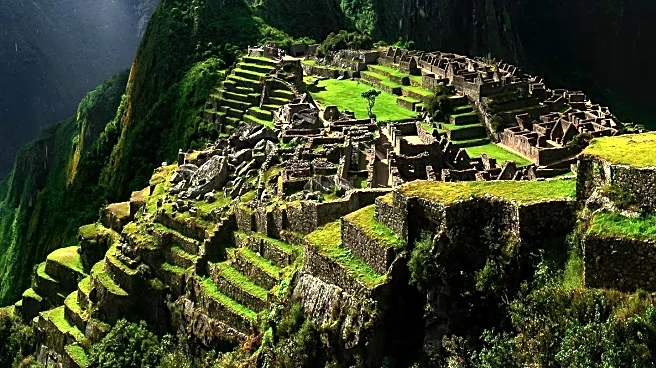What's Happening?
Protests in Peru have left around 900 tourists stranded at Machu Picchu due to disruptions in train service. The protests stem from a labor dispute involving the replacement of the bus operator Consettur, which previously transported visitors to the UNESCO World Heritage site. PeruRail suspended service in the Cusco region after tracks were blocked by rocks and excavated by third parties. Despite efforts to evacuate tourists, ongoing protests have slowed the process, leaving many stranded in Aguas Calientes. The U.S. government issued a travel warning, and the New 7 Wonders organization threatened to reconsider Machu Picchu's status if the conflict escalates.
Why It's Important?
The protests highlight the fragility of tourism infrastructure in regions dependent on heritage sites. Machu Picchu, a major tourist attraction, generates significant revenue for local businesses and the national economy. Disruptions in access can lead to economic losses and damage Peru's reputation as a tourist destination. The labor dispute underscores the need for transparent and fair processes in managing transportation services. Stakeholders, including local businesses, government officials, and international organizations, are concerned about the potential long-term impact on tourism and heritage preservation.
What's Next?
Efforts to resolve the labor dispute are crucial to restoring normalcy and ensuring the safety of tourists. The Peruvian government may need to engage in negotiations with protesters to address grievances and establish a sustainable transportation solution. International pressure, including from organizations like New 7 Wonders, could influence government actions. The situation may prompt a reevaluation of tourism management practices and infrastructure investment in heritage sites. Stakeholders will likely monitor developments closely, advocating for solutions that balance economic interests with cultural preservation.











